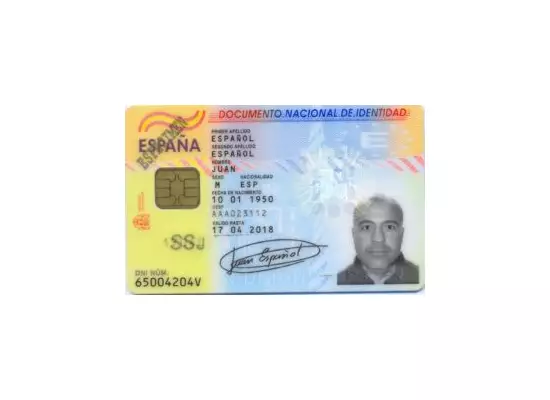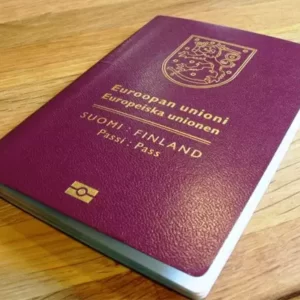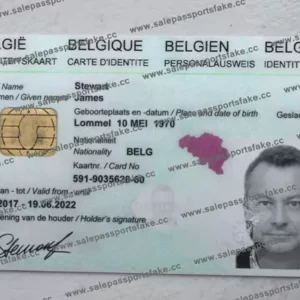PORTUGUESE ID CARD
$1,007.00
The first pilot phase of the Portuguese ID Card also known as Cartão de Cidadão started February 14, 2007, in the Azores region. The full roll-out started in 2008.
In 2014, all Portuguese citizens have their new national identity card in hand replacing the old paper-based document.
The goal of issuing a Portuguese ID Card was to revolutionize the way in which Portuguese citizens interact with the government.
Description
The Innovative Portuguese ID Card Scheme
In the ever-evolving landscape of digital governance, Portugal embarked on a groundbreaking journey with the introduction of the Portuguese ID Card, locally known as “Cartão de Cidadão.” This article delves into the transformative aspects of this pioneering initiative and its pivotal role in modernizing the state.
Unveiling the Portuguese ID Card
The Portuguese ID Card initiative embarked on its maiden voyage on February 14, 2007, during the pilot phase in the picturesque Azores region. The full-scale rollout commenced a year later in 2008. By 2014, Portuguese citizens bid adieu to their old, paper-based national identity cards, embracing the new era of digital identification.
Simplifying the Bureaucracy
The overarching goal of the Portuguese ID Card was to simplify and streamline the interaction between Portuguese citizens and the government. It achieved this by consolidating five different physical ID documents into one multifunctional card:
- Civil Identification Card: The predecessor to the paper-based Portuguese ID Card.
- Taxation Card
- Voting Card
- Social Security Card
- Healthcare Card
This multifaceted card, known as “Cartão do Cidadão” or citizen’s card, empowers individuals to effortlessly identify themselves before government officials. Notably, as of 2019, even registered foreigners in Portugal can apply for this versatile citizen card, further fostering inclusivity.
A Digital Revolution Unleashed
The Portuguese ID Card’s second objective was to harness its potential as a tool for electronic signatures and online authentication. This move aimed to accelerate the development of electronic transactions while ensuring the digital safety and peace of mind of citizens.
To authenticate themselves, cardholders simply input a secret PIN code, and the card generates a secure digital signature for various declarations and electronic administrative procedures. This digital signature grants cardholders access to e-government services securely.
The card’s design adheres to Portugal’s constitutional prohibition of a central database for names. It accommodates several identifiers on both the front and back, including the Civil ID number, social security number, tax number, and healthcare user number.
In the digital age, numerous public services are accessible online, drastically reducing the time required for tasks such as obtaining civil records or birth certificates, as well as processing Social Security declarations. Astonishingly, by 2014, over 45% of cardholders had activated their digital certificates, highlighting the widespread adoption of this revolutionary initiative.
Supporting Biometrics
The Portuguese ID Card goes a step further by incorporating biometric authentication. Fingerprints, when required, are securely stored within the card’s microprocessor. Notably, the card employs a “match on card” mechanism that enables biometric authentication without the need for a central biometric database—a practice strictly forbidden in Portugal. Biometric credentials never leave the smart card, ensuring constant protection. The card’s processor conducts the fingerprint comparison, answering the crucial question: does the presented fingerprint correspond to the one stored in the card?
A Collaborative Triumph
For the Imprensa Nacional Casa da Moeda SA (INCM), the Portuguese National Printing Office, the Portuguese ID Card project represented another opportunity to showcase their unique expertise. This followed their success in the electronic passport project.
In 2006, INCM partnered with Thales as the prime contractor to provide the digital security solution for the national eID card, including the secure operating system, personalization system (Coesys Issuance solution), applications, middleware, and associated helpdesk services through Zetes Burótica, the Portuguese subsidiary of Belgian Zetes Industries.
The Portuguese government selected a secure identification document based on identification, authentication, and signature (IAS) specifications—the first of its kind in Europe.
Beyond the Citizen Card
Portugal’s journey towards modernization stands as a remarkable testament to state transformation. With a vision to become a more citizen-centric society, Portugal embarked on a mission to enhance service quality for both citizens and businesses.
A Glimpse into the Past
Fifteen years ago, Portugal grappled with centralized governance, creating divisions between local and central authorities. The internet had made inroads among the elite, but citizen engagement in online services remained low. Modernizing the state through digital channels and fostering cohesion seemed a daunting task.
Yet, Portugal embraced bold commitments:
- Cross-functionality: Prioritizing cross-functional collaboration to bridge administrative divides.
- Tangible Benefits: Ensuring that the benefits of change were immediately visible before transitioning to the digital realm.
- Citizen-Centric Approach: Rebuilding the organizational framework around citizen needs without compromising administrative efficiency.
The Simplex Transformation
The Simplex program, launched between 2006 and 2011, ushered in more than 1,000 measures of administrative and legislative simplification, driving e-government initiatives. Notable accomplishments included the introduction of the Citizen Card, which replaced five documents, and the creation of Citizen Shops, offering a one-stop-shop for public and private services.
These initiatives not only improved the lives of citizens and businesses but also reduced administrative costs. The program garnered international recognition from the United Nations and the European Commission, solidifying its reputation as a catalyst for positive change.
Embracing Simplex+
Simplex+ extends the legacy of its predecessor by addressing new challenges with a participatory, innovative approach. It stimulates innovation through initiatives like the “startup simplex” competition and fosters collaboration between public and private sectors, ensuring a smoother banking experience.
The result? Portugal leaped nine places in the United Nations e-Government Development Index (EGDI) between 2016 and 2018, reaffirming its commitment to digital transformation.
Learning from Portugal’s Experience
In an era where secure digital identity is paramount, Portugal’s journey offers valuable insights:
- Permanence: Successful transformation takes time and relies on unchanging fundamentals.
- Guidance: Change should be explained and guided, fostering trust through positive feedback.
- Visible Impact: High-impact, visible initiatives like citizen spots and citizen cards can drive uptake, particularly in areas where digital technology is still evolving.
Portugal’s commitment to modernization and citizen-centric governance serves as a beacon for nations seeking to harness the power of digital identity and streamline public services.







Reviews
There are no reviews yet.